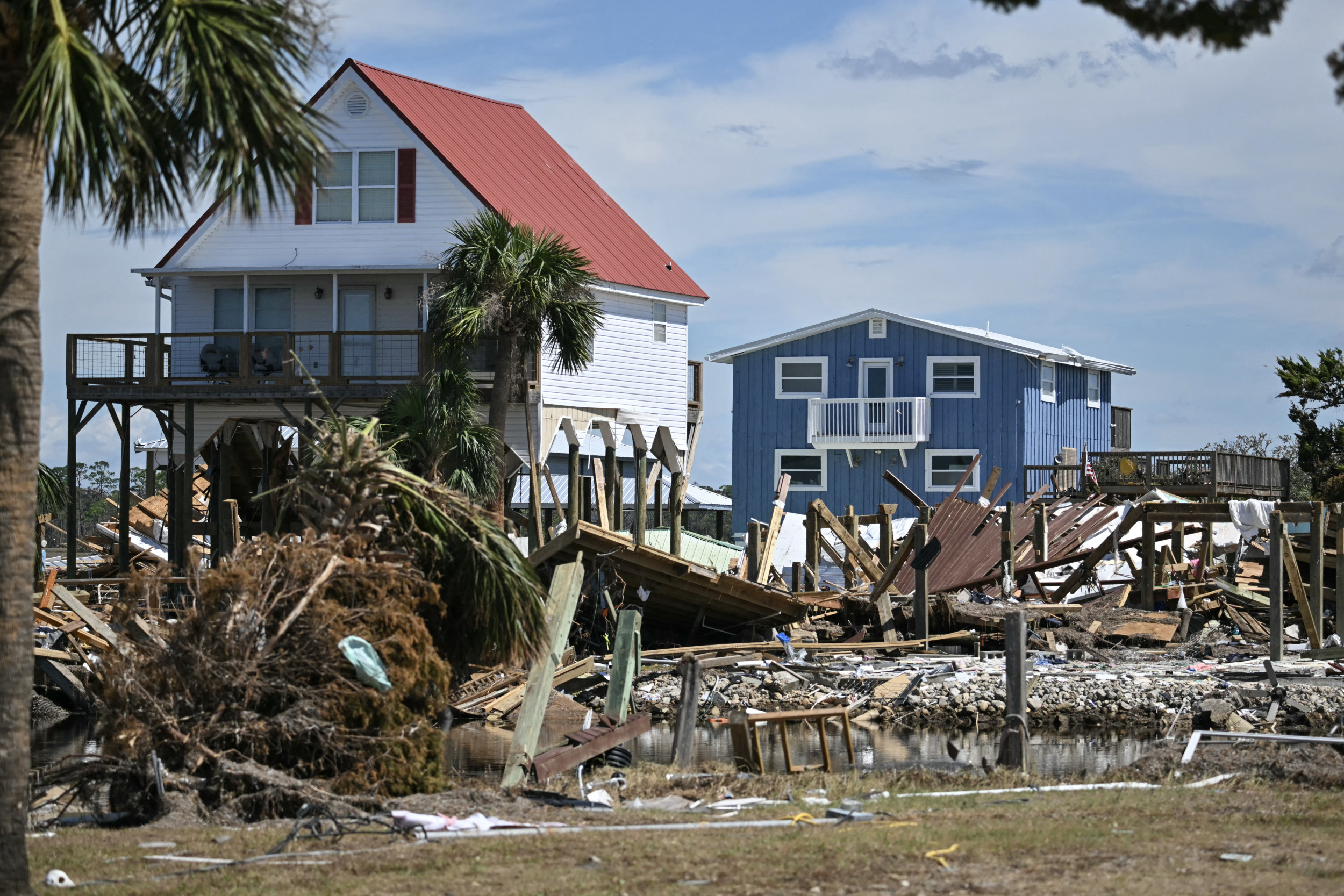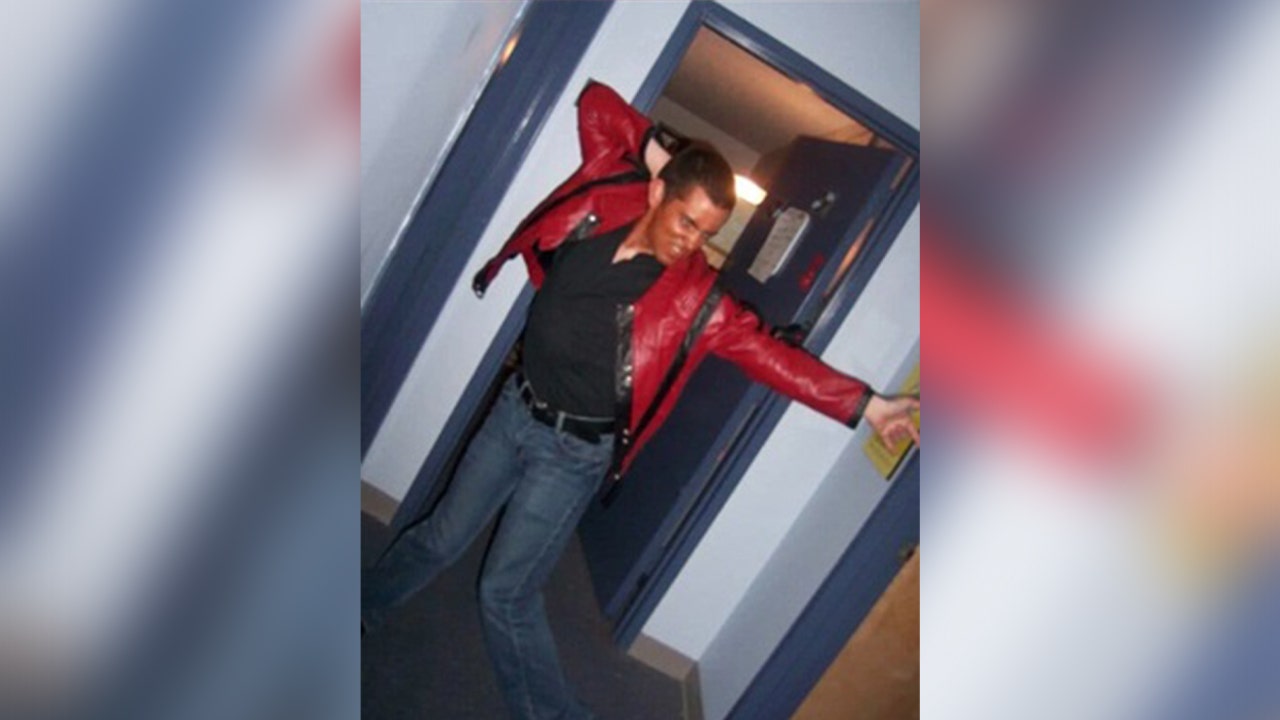Florida
Florida program allows DMV to revoke driver licenses based on anonymous reports

BROOKSVILLE, Fla. — Many of us have made the tough decision to take away car keys from elderly relatives who can no longer drive safely.
But a Hernando County woman said she’s been unfairly targeted by a state program to report dangerous drivers and get them off the road.
Allison Boston, a cancer patient living in Brooksville, has endured a months-long battle with the Florida Department of Highway Safety and Motor Vehicles to keep her license, even though her doctor says she can drive.
Her license is crucial to her because she lives alone and has no family nearby to take her 65 miles to doctor appointments at the Moffitt Cancer Center.
An Uber ride to appointments in Tampa costs more than $200 round trip, and she said volunteers from the American Cancer Society will only give her rides within a 10-mile area.
WFTS
FLHSMV listed Boston as a “Safe Driver”
Boston earned the designation “Safe Driver” on her license thanks to her driving habits over half a century.
She has never had an accident, never had a speeding ticket, or even been pulled over by police.
But that may change soon since the Florida Department of Highway Safety and Motor Vehicles has threatened to revoke her license.
It started in June when Boston went to urgent care for dizziness.
An MRI showed cancer from her lung, which had been in remission, spread to her brain.
The physician’s assistant who treated her immediately filled out a form and sent it to the state saying she was no longer safe to drive.
“I begged him not to do that because I knew you’re not even giving me a chance to go see a doctor or find out what’s going on or anything,” Boston said.
Between 2017 and 2022, the Florida Department of Highway Safety and Motor Vehicles initiated 79,215 cases as part of its medical review process.
Medical Advisory Board sets standards
“DHSMV came up with rules to revoke somebody’s license for medical reasons,” said Tampa Attorney Leslie Sammis, whose firm often helps drivers navigate the process.
A board of physicians oversees the process called the Medical Advisory Board, which evaluates and sets medical and vision standards for Florida drivers.
WFTS
The board can revoke drivers’ licenses for medical reasons, a process authorized under Florida Statutes intended to keep dangerous drivers off the road.
“The system itself is so secretive that I don’t think anyone really knows whether it works well or not,” Sammis said.
She said it’s often difficult for her clients to reach people on the phone or get direct answers after they have been notified that they have been reported as having a medical condition that makes them dangerous to drive.
The state sent Boston a long list of questions to answer and send back to the board, intended to allow drivers to self-report medical issues.
“Let me go through some of this. Psychiatric, mental, alcohol and drug. No. Diabetes, no. Cardiac, something skeletal, no. Sleep disorder, no,” she said, reading through the list.
She wrote “N/A” on every line.
After having surgery to remove her tumor, she said she no longer has symptoms or takes any medication.
Doctors must verify the driver’s medical status as part of program
Boston’s doctor, a neurologist at Moffitt Cancer Center, vouched for her health and ability.
“He wrote a letter saying there’s no reason why my driving privileges should be suspended, revoked, or anything. There’s no reason why I can’t drive. I’m doing it now,” Boston said.
Sammis said the doctor’s letter is the only reason she’s still driving.
WFTS

“If your doctor isn’t willing to fill out the form to say you’re safe to drive, then they’ll just revoke your license permanently,” Sammis said.
She said some of her clients don’t have primary care providers, making finding someone to sign their forms challenging.
Sammis said anybody can make a report to the state claiming they have a medical condition, even if they don’t.
While often, the process is used to report family members who are no longer safe drivers; it can also be used to retaliate against drivers.
“The people making the complaints, those are completely confidential. And they have immunity where you can’t find out who they are,” she said.
Sammis charges clients $4,000 to assist them in getting licenses restored after a medical complaint has been made because it can be a long and challenging process.
“They literally can spend hours and hours and hours and a lot of work and providing all their medical records,” she said.
Boston said she’ll have to pass a vision test, a driving test, and a written exam within 90 days of getting her last letter.
She only has a few weeks left.
“It’s a lot to study. It’s a lot to try to remember and all that,” Boston said.
More than 50,000 licenses revoked
Between 2017 and 2022, 54,316 Florida drivers had their licenses revoked by the Medical Advisory Board.
Boston hopes that won’t happen to her.
“I don’t know how they have that much power. I get that they’re trying to keep everyone safe,” she said. “I don’t think it’s fair at all to put people through this. I just don’t. It’s horrible. “
We contacted Florida AARP about the program.
A spokesperson said the organization has consistently championed the cause of driver safety, emphasizing that their stance is based on the importance of ensuring all drivers on our roadways remain safe, regardless of their age.
A spokesperson wrote in an email, “Driver safety should be assessed not on age but on a driver’s actual abilities and performance. AARP advocates for regular evaluations that encompass an individual’s cognitive and physical capabilities, as well as their overall driving competence. We firmly reject age-based restrictions on driving, firmly believing that one’s age should not be the sole determinant of their driving ability.”
AARP points to important resources, including the AARP Smart Driver Course, which stresses defensive driving, and the We Need to Talk program.
To report a driver who you believe may be unsafe in Florida, use this form.
If you have a story you think the I-Team should investigate, email us at adam@abcactionnews.com

Florida
Florida’s biggest insurer cuts over 600K policies after Hurricane Helene

An property insurer of last resort in Florida is set to hand over hundreds of thousands of policies to the private sector later this month due to overwhelming demand.
Earlier this year, regulators in the Sunshine State approved proposals that would allow private insurers to take policies from the state’s Citizens Property Insurance Corporation. Citizens, which was created by the Florida Legislature in 2002, provides insurance to eligible Florida property owners unable to find insurance coverage in the private market. It is the largest insurer in the state.
On August 2, insurance commissioner Michael Yaworsky signed an order allowing 10 private insurance carriers to take on 413,808 policies from Citizens beginning in late October. According to a report by Florida Politics, in the last two weeks, a further 235,035 were approved for removal beginning in November.
Newsweek has contacted Citizens for verification on this number via email outside of normal working hours.
The number of Citizens policies has soared in recent years as private insurers dropped customers and raised rates due to losses caused by payouts and litigation. Citizens has 1,250,791 policies in force as of August 2024. In August 2019, five years ago, it had 420,366 active policies.
MANDEL NGAN/AFP/GETTY
“Citizens is committed to helping its policyholders find coverage in the private market,” its website reads. “As required by Florida law, Citizens’ Depopulation Program matches Citizens policyholders with insurance companies interested in removing their policy from Citizens and providing private-market coverage for their policy.”
The depopulation will arrive not long after Hurricane Helene hit Florida and other eastern states at the end of September. With a death toll that has now surpassed 200 people, with hundreds more still reported missing, it is shaping up to be one of the worst storms in U.S. history.
The latest data released by the Florida Office of Insurance Regulation shows that 84,400 claims have been made by homeowners and businesses since Hurricane Helene hit, with 42,219 of these being for residential properties. So far, 1,340 of these claims have been closed with a payment, while 2,712 have been closed without a payment. More than 38,000 insurance claims are still open.
Florida residents are grappling with some of the highest home insurance rates in the country. According to Bankrate, the average insurance cost for a home valued at $300,000 in October 2024 is $5,527 per year—way higher than the rate for a home of the same value in neighboring Georgia ($2,071) and Alabama ($2,745).
The average home insurance premium in Florida is $3,242 more expensive than the national average of $2,285. In some areas, costs can climb to in excess of $8,000. The state average is second only to Nebraska, where the average premium on a $300,000 home is $5,652.
Florida
Flyovers and satellite images: North Carolina, Florida before and after Hurricane Helene

Hurricane Helene has left a wake of death and destruction across Florida, Georgia, the Carolinas and Tennessee after it made landfall in Florida on Sept. 26. Despite being downgraded to a tropical depression, hundreds were killed by the storm, millions are still without power, and the damage is estimated in the billions of dollars.
The number of confirmed deaths reached 214 Thursday after officials in the Carolinas released updates, according to a USA TODAY Network analysis. The storm wrought a level of destruction on western North Carolina not seen for over 100 years. Officials in North Carolina said deaths in the state had risen to 108, including 72 deaths in Buncombe County, as reported by the Asheville Citizen-Times. South Carolina has reported 41 fatalities, Georgia 33, Florida 19, Tennessee 11 and Virginia two.
Here is a closer look at the devastation left behind, captured by aerial photos taken by Nearmap, and satellite images captured by Maxar Technologies:
Contributing: Staff/Asheville Citizen-times; Sean Dougherty and Dinah Voyles Pulver/USA TODAY
More visual stories about Hurricane Helene: Need help in Asheville, NC, after Helene? Mapping locations of water, food, shelter, Wi-Fi
Starting Hurricane Helene cleanup? Here’s how to deal with flood and storm damage
How flood damage is cutting off North Carolina communities from emergency relief
Hurricane Helene was massive at landfall. Here’s how it compares with past storms
Hurricane season is not over yet: Why season winds mean Florida should stay on alert
Maps track Hurricane Helene’s 800-mile path of destruction across southeastern US
Maps show Hurricane Helene’s destructive path across Florida, Georgia
Emergency preparedness 101: What to pack in a ‘go bag’
Florida
‘What he needs to do’: President Biden sees Helene devastation in Florida first-hand

President Joe Biden tours Helene-damaged areas of Florida
President Joe Biden was in Florida Thursday to observe the damage left behind by Hurricane Helene.
KEATON BEACH — President Joe Biden stopped in north Florida for a whirlwind visit to meet with local leaders and residents reeling from the devastation caused by Hurricane Helene last week.
Sen. Rick Scott, R-Fla., and John Louk, director of Taylor County Emergency Management, showed the president a FEMA map in a briefing on the side of the road in front of toppled trees and remnants of destroyed homes.
They detailed Helene’s catastrophic wind speed in Florida and explained how the storm cut a path of destruction into the Nature Coast, up to North Florida and whipped through South Georgia.
Preliminary damage estimates are a little over $50 million on the Taylor County coastline alone, said Andrew Morgan, the public information officer for the county’s emergency management agency.
About 250 to 300 homes on the county’s coast were lost or are uninhabitable, he said.
Florida continues to recover in the aftermath of the Category 4 storm, which left at least 19 dead, including at least 12 in Pinellas County — hundreds of miles away from where the storm made landfall. In the Southeast, the death toll surpassed 200 as the need for power and water in North Carolina grew more urgent for hundreds of thousands of residents.
On Thursday morning, the president arrived at Tallahassee International Airport in Air Force One and then departed on Marine One to tour ground zero of Helene’s landfall.
Bill Collins, a resident of Keaton Beach, was on his neighbor’s porch when the motorcade arrived and said he was glad to see the president make a stop in Taylor County.
“That’s what he needs to do. He’s supposed to go through and at least see with his own eyes,” Collins said.
He hopes Biden frees up more federal aid for states hit by Helene, especially North Carolina and Tennessee.
“We aren’t the only ones,” he told the USA TODAY NETWORK – Florida. “We’re all in this together.”
In a post on X, Sen. Scott said he would be filing an appropriations bill to fund FEMA, the USDA and the SBA for Helene recovery efforts.
“During my meeting with President Biden, I stressed that the federal government’s response to hurricanes over the last two years has left too many Floridians, especially our farmers, hurting and with unmet needs – and this must be fixed NOW,” Scott wrote.
He also criticized the federal government’s response to hurricanes Ian, Idalia and Debby.
“I’ll be fighting like hell to deliver disaster aid to our state, and ensure seamless debris removal guidance for our local communities, and I urged the federal officials there today to put Floridians and all Americans first by doing the same,” he said.
In the briefing with the president, Louk said that while some of the homes are still standing, they are advising residents to inspect their homes for structural damage.
Biden, who donned a baseball cap and aviator sunglasses, spent time speaking with Taylor County’s first responders, including Sheriff Wayne Padgett.
“He was very nice, he shook all of our hands,” Morgan said.
Biden even sang “Happy Birthday” to one of the first responders.
“He was very supportive of what we have going on,” Morgan added.
The entire visit to Taylor County took no longer than two hours.
Biden then returned to the Perry airport and boarded Marine One to head to Valdosta, Georgia.
Gov. Ron DeSantis did not accompany the president on this visit. He also skipped out when Biden came to Florida after last year’s Hurricane Idalia, though he did meet with him after Hurricane Ian in 2022.
“No, it’s just we had this planned,” DeSantis said, when asked whether there was any reason he didn’t accompany Biden Thursday. DeSantis spoke from Ana Maria Island in Manatee County, more than 200 miles away from where Biden visited.
He held a press conference to announce three executive orders related to recovering from Helene: waiving local governments’ rental date requirements; allowing supervisors of elections affected by Helene to set up alternative polling places; and streamlining ports and supply chain operations to mitigate the effects of the port strike and get needed supplies into the state to aid recovery efforts.
Ahead of Thursday’s tour of devastation in Florida and Georgia, White House Press Secretary Karine Jean-Pierre briefed reporters in the air on the way to Tallahassee airport. She trumpeted how the Biden administration will cover 100 percent of the costs associated “with things like debris removal, first responders, search and rescue, shelters, and mass feeding operations.”
“Still, we know there is more work to be done,” she said. “And we will be here, doing that work, for as long as it takes.”
Ana Goñi-Lessan, state watchdog reporter for the USA TODAY Network – Florida, can be reached at agonilessan@gannett.com.
-
/cdn.vox-cdn.com/uploads/chorus_asset/file/25439572/VRG_TEC_Textless.jpg)
/cdn.vox-cdn.com/uploads/chorus_asset/file/25439572/VRG_TEC_Textless.jpg) Technology2 days ago
Technology2 days agoCharter will offer Peacock for free with some cable subscriptions next year
-

 World1 day ago
World1 day agoUkrainian stronghold Vuhledar falls to Russian offensive after two years of bombardment
-

 News1 week ago
News1 week agoVideo: Where Trump and Harris Stand on Democracy
-

 World1 day ago
World1 day agoWikiLeaks’ Julian Assange says he pleaded ‘guilty to journalism’ in order to be freed
-

 Technology19 hours ago
Technology19 hours agoBeware of fraudsters posing as government officials trying to steal your cash
-

 Business1 week ago
Business1 week agoVisa, Google, JetBlue: A Guide to a New Era of Antitrust Action
-

 Politics1 week ago
Politics1 week agoFLASHBACK: VP Harris pushed for illegal immigrant to practice law in California over Obama admin's objections
-

 Education1 week ago
Education1 week agoVideo: Los Angeles Bus Hijacked at Gunpoint















